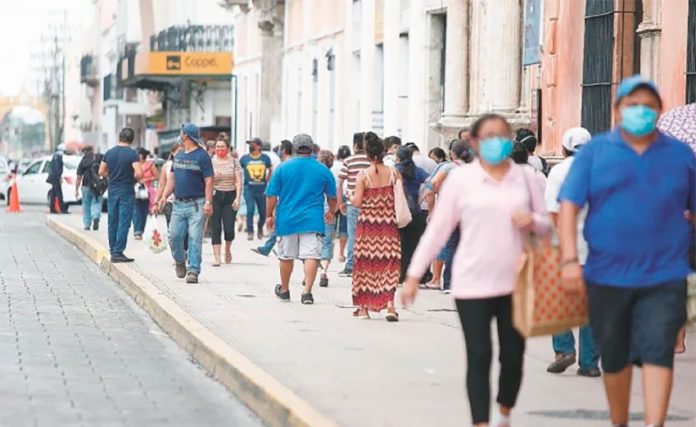Thousands of businesses across Mexico reopened on Monday as the country takes further steps to get back to normal amid the ongoing coronavirus pandemic.
Most of the businesses that reopened are located in the 16 states that were allocated an “orange light” on the federal government’s updated stoplight map that was published last Friday and remains in effect until the end of this week.
The “orange light” designation, which denotes a high risk of coronavirus infection, paved the way for the reopening of businesses that have been shuttered for more than two months as part of efforts to contain the spread of the virus.
In Guadalajara, Jalisco, practically all businesses reopened on Monday allowing 80% of commercial sector employees to return to their jobs, according to state authorities. The newspaper El Universal reported that the only businesses that were closed in the Santa Teresita shopping district were those that were unable to survive the enforced shutdown.
Despite the ongoing risk of infection – the risk level in Jalisco was downgraded from “red light” maximum level to “orange light” high level even though the state has one of the largest active outbreaks in the country – business owners had no choice but to get back to work, said one man identified only as Adrián.
“Either we die of the virus or of hunger,” the Santa Teresita business owner told El Universal.
Before yesterday’s economic reactivation in Jalisco, Governor Enrique Alfaro said bluntly: “We’ll have to learn to live with risk.”
To mitigate that risk, businesses in Jalisco are required to implement a range of preventative measures, among which are only allowing one person per family into shopping centers and limiting capacity in stores to one person per seven square meters.
Another state where a large number of businesses reopened on Monday was Baja California Sur, which was also allocated an “orange light” on this week’s map.
The streets of state capital La Paz bustled with people yesterday, El Universal reported, noting that businesses selling essential products were particularly busy. Wait staff at restaurants on the city’s seafront malecón were kitted out with face masks and protective shields and tables were spaced out to ensure that diners could practice social distancing.
Farther north, dozens of restaurants in the northern border city of Tijuana reopened over the weekend even though Baja California is still a “red light” state. Some other nonessential Tijuana businesses, including a number of bars, cantinas, casinos and strip clubs, also welcomed patrons over the weekend.
In Yucatán, about 50% of businesses reopened on Monday and some 60,000 employees returned to work, El Universal said.
Michel Salum Francis, president of the Mérida branch of the National Chamber of Commerce, Services and Tourism, said that keeping businesses closed any longer would be catastrophic for the economy and employment in Yucatán, while the state branch of the national restaurant association Canirac said that 20,000 jobs have been lost in that sector.
El Universal reported that vehicle and foot traffic was up in Mérida on Monday, but most people observed social distancing recommendations and wore face masks. However, the observance of coronavirus mitigation measures was less strict in the city’s busy markets.
Yucatán has recorded 2,581 Covid-19 cases since the start of the pandemic, of which 415 are currently active.
Source: El Universal (sp)
